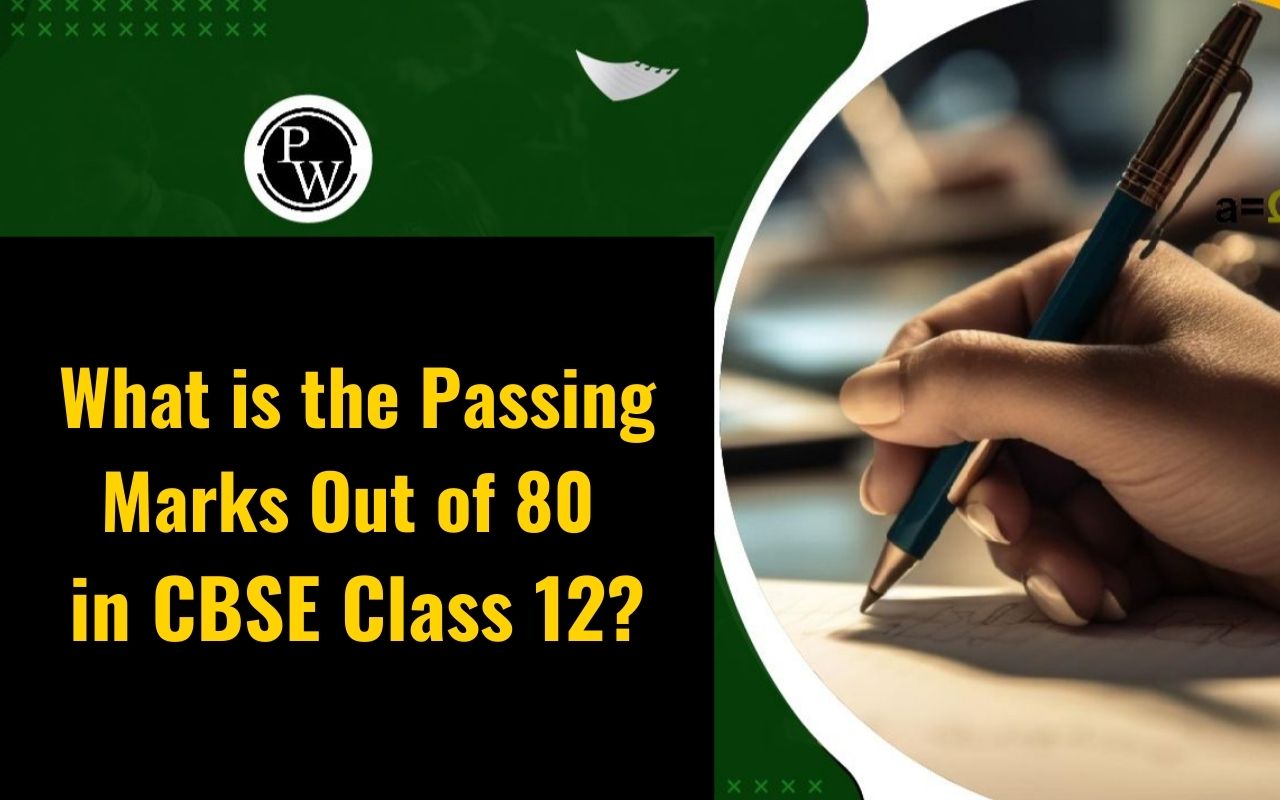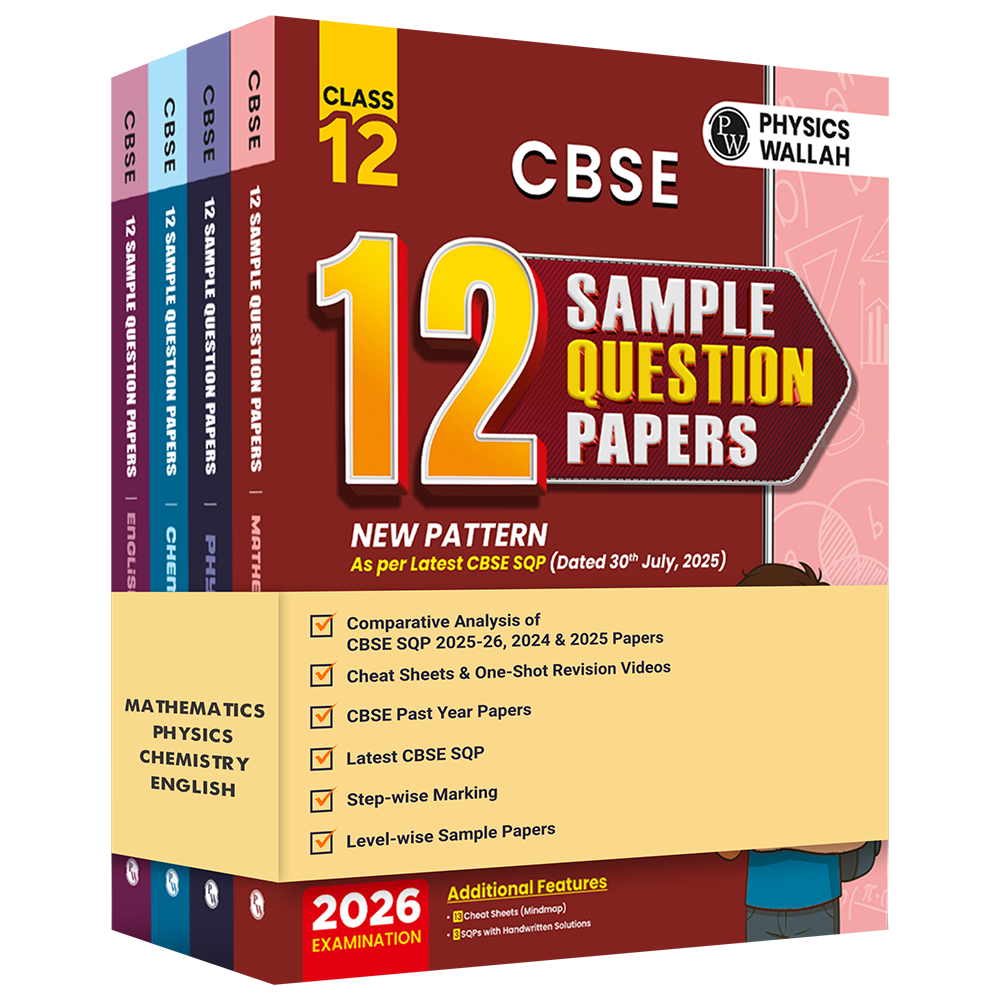What is the Passing Marks Out of 80 in CBSE Class 12?

What is the passing marks out of 80 in CBSE class 12? or Are you feeling anxious about your CBSE Class 12 board exams? You are not alone in this journey. Many students experience stress when preparing for this exam, especially knowing the passing marks. Questions like “How can I ensure I meet the criteria?” often weigh heavily on students' minds.
The fear of falling short on any subject can be daunting. It is not just about passing, but about feeling confident and ready for the next step in your academic journey. So, once you understand the basic requirements, things will feel much more manageable. So, we will clear the most asked questions and clear all the confusion you might have in your mind.
What are the Passing Marks Out of 80 in CBSE Class 12?
If each subject has 80 marks, students must score at least 26 to pass. This is 33% of the maximum marks, which can be calculated by multiplying the total marks by 0.33.
For example, 80 x 0.33 = 26.4, which rounds down to 26 marks. Here is a breakdown of the passing marks for each subject based on this criterion:
|
Passing Marks Out of 80 in CBSE Class 12 |
||
|
Subject |
Maximum Marks |
Passing Marks |
|
Mathematics |
80 |
26 |
|
Physics |
80 |
26 |
|
Chemistry |
80 |
26 |
|
Biology |
80 |
26 |
|
English Core |
80 |
26 |
|
Economics |
80 |
26 |
This ensures clarity for students preparing across all major subjects in CBSE Class 12.
Check out: CBSE Class 12 Sample Paper
Passing Marks for Other Marking Schemes
CBSE examinations have varied total marks depending on the subject. We will check the passing marks in board exam for other common marking distributions:
CBSE Passing Marks Out of 100
For subjects such as Environmental Studies or standalone theory papers worth 100 marks:
-
Minimum passing marks: 33 out of 100.
Passing Marks Out of 70
For subjects like Physics, Chemistry, and Biology:
|
Component |
Maximum Marks |
Passing Marks |
|
Theory (out of 70) |
70 |
23 |
|
Practical (out of 30) |
30 |
10 |
Passing Marks in Board Exams (General Rule)
Across all subjects, CBSE compulsory that students must score:
-
33% in theory.
-
33% in practicals or internal assessments.
-
33% aggregate across all subjects.
Check Out: Class 12th Question Banks
How Are Marks Calculated?
Each subject’s total score is a combination of theory and practical/internal assessment marks. Students must clear both components separately. CBSE checks a student's performance based on the combined score of theory and practical/internal assessment components. To pass a subject, students must meet the minimum requirement of 33% marks in both theory and practical/internal assessments separately.
For example:
If a student scores 25 marks out of 80 in theory (less than the required 26 marks), they fail the subject, even if they pass the practical/internal component.
This will ensure a balanced understanding of theoretical concepts and their practical applications, encouraging students to focus on both areas equally.
Implications of Not Achieving Passing Marks
-
Compartment Exams:
Students who have failed one or two subjects are eligible to take compartmental examinations, which are designed to allow them to improve their grades and potentially graduate. This offers students a second chance to pass their classes, preventing the loss of an entire academic year and allowing them to stay on track toward graduation.
-
Repeat Year:
If a student receives a failing grade in more than two academic subjects, then that student will need to repeat the school year.
Tips to Pass CBSE Class 12 Exams
1. Understand the Syllabus and Exam Pattern
CBSE provides a detailed syllabus and weightage for each topic. Understanding this helps prioritize preparation.
2. Learn Time Management
Allocate more time to subjects or topics you find challenging. Stick to a daily study schedule.
3. Practice with Sample Papers
Solve past year’s question papers and CBSE sample papers to understand the exam format and improve time management.
4. Focus on concepts rather than rote
Memorizing can help in some cases, but understanding concepts is key to scoring well in board exams.
5. Revise Regularly
Revision strengthens retention. Dedicate the last two weeks before the exams to revising important topics and formulas.
If you want to clear the CBSE Class 12 exams, you must meet passing marks for each subject. This includes scoring at least 33% in both theory and practical components. Also, to improve your chances of success, familiarize yourself with the rules, practice regularly, and manage your time effectively. Preparation, persistence, and a positive mindset are important for excelling in these exams and achieving your academic goals.
Read More: CBSE Topper Answer Sheet for Class 12 PDF Download
CBSE Class 12 Question Bank for All Subjects
12th Passing Marks FAQs
1. Can I pass if I score well in theory but fail in internals?
No. Both theory and internal assessments are assessed separately. You need at least 33% in each component to pass.
2. Are compartment exams easy to clear?
Compartment exams cover the same syllabus as the main exams. If you prepare thoroughly and address your weak areas, clearing the compartment exam is achievable.
3. How is the 33% passing criterion calculated?
The passing criterion is calculated as 33% of the total marks for each subject. For instance, if a subject has a maximum of 80 marks, 33% of 80 is 26.4, which rounds down to 26 marks.
4. Can I apply for re-evaluation if I fail with 1 or 2 marks?
Yes, CBSE allows students to apply for re-evaluation or rechecking of their answer sheets if they believe there has been a mistake in marking.
5. Do practical marks carry forward if I fail in theory?
Yes, practical marks are carried forward to the next exam cycle. You only need to reappear for the failed theory component.












